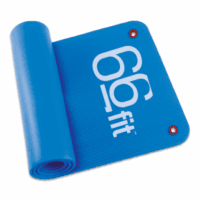Diabetes: Advice From Our Exercise Physiologist
What is Diabetes?
- What is Diabetes?
- Preventing Diabetes: Taking Control of Your Health
- I am Diagnosed with either type 1 or 2, what can I do?
- I need help managing my condition – Who can I see?
What is Diabetes?
Diabetes is a chronic health condition that occurs when the body either cannot produce enough insulin or cannot effectively use the insulin it produces. Insulin is a hormone produced by the pancreas that helps regulate blood sugar (glucose) levels and allows cells to use glucose for energy. There are two main types:
Type 1 Diabetes: This type occurs when the immune system mistakenly attacks and destroys the insulin-producing cells in the pancreas (beta cells). People with type 1 diabetes require insulin injections or an insulin pump to survive because their bodies can no longer produce insulin.
Type 2 Diabetes Mellitus (T2DM): This type occurs when the body becomes resistant to insulin or when the pancreas cannot produce enough insulin to meet the body’s needs. It is often associated with lifestyle factors such as being overweight or inactive, although genetics and other factors can also play a role. Type 2 diabetes can sometimes be managed through lifestyle changes (such as diet and exercise), oral medications, and sometimes insulin injections.
In both types of diabetes, if blood sugar levels are not properly managed over time, it can lead to serious health complications such as heart disease, stroke, kidney disease, nerve damage, and vision problems. Please see more information in the Diabetes section of this website.
Preventing Diabetes: Taking Control of Your Health
Type 1 diabetes cannot be prevented as it is an autoimmune response from the body that destroys insulin producing cells. This disease is commonly developed in childhood or adolescence, sometimes adulthood. Type 2 diabetes can often be prevented or delayed with lifestyle changes and sometimes medication. Here are some key strategies that can help prevent or reduce the risk of developing type 2 diabetes:
- Maintain a Healthy Weight
- Eat a Balanced Diet
- Be Physically Active
- Monitor Blood Sugar Levels
- Limit Alcohol Consumption
- Quit Smoking
- Get Regular Check-ups
By adopting these healthy lifestyle habits, individuals can significantly reduce their risk of developing type 2 diabetes and improve their overall health and well-being. It’s important to consult with a healthcare provider for personalized guidance and to monitor any potential risk factors. This can be your doctor or Allied health professional such as AEP, dietician or diabetes educator.

I am Diagnosed with either type 1 or 2, what can I do?
If you have diabetes, whether it’s type 1 or type 2, there are several key steps you can take to manage your condition effectively and live a healthy life:
- Monitor Blood Sugar Levels: This helps you understand how food, physical activity, medications, and stress affect your blood sugar levels.
- Follow a Healthy Eating Plan: Work with a registered dietitian or healthcare provider to develop a balanced diet rich in fruits, vegetables, whole grains, lean proteins, and healthy fats. Monitor portion sizes and limit sugary and high-fat foods.
- Engage in Regular Physical Activity: Aim for at least 150 minutes of moderate-intensity aerobic activity, per week, plus muscle-strengthening exercises on two or more days a week.
- Take Medications as Prescribed and educate yourself on diabetes management techniques and what your medications do.
- Monitor and Manage Your Blood Pressure and Cholesterol: Diabetes increases the risk of heart disease, so it’s important to monitor and manage your blood pressure and cholesterol levels with the help of your healthcare provider.
- Quit Smoking: Smoking increases the risk of complications from diabetes, including heart disease and stroke.
- Manage Stress: Practice relaxation techniques such as deep breathing, meditation, or yoga to help manage stress levels.
- Attend Regular Medical Check-ups: Schedule regular visits with your healthcare provider to monitor your diabetes management, check for any complications, and adjust your treatment plan as needed.
- Stay Connected: Join a diabetes support group or community.
Managing diabetes requires a lifelong commitment to healthy lifestyle choices and regular medical care. By taking proactive steps to manage your diabetes, you can reduce the risk of complications and lead a full, active life.

Exercise and Diabetes
Studies show that exercise can:
- help prevent or delay T2DM;
- improve control of blood glucose;
- decrease the proportion of body fat;
- decrease the risk of heart disease;
- and increase heart and lung fitness in people with T2DM.
I need help managing my condition?
There are several healthcare professionals who can help you manage your diabetes effectively: Primary Care Physician, Endocrinologist, Certified Diabetes Educator, Registered Dietician, Pharmacist, Podiatrist, Optometrist, Mental Health Professional, Exercise Specialist (AEP) or Diabetes Support Groups.
It’s important to build a healthcare team that meets your individual needs and supports your diabetes management goals. Your primary care physician can help coordinate care with other specialists and healthcare professionals as necessary. Working closely with your healthcare team and staying proactive in managing your diabetes can help you live a healthy and fulfilling life despite the challenges of the condition.
Accredited Exercise Physiologists are exercise specialists that pursue helping people with chronic conditions such as diabetes. They focus on implementing behavior change techniques, physical activity modifications and specific exercise programs to help people adhere and get the most out of being physically active. Seeing an AEP can also help you improve your self-management, with their ability to provide education on various topics and ‘How To’s’ to keep developing your capacity and grow your knowledge of not only the condition but your own body. Exercise prescribed by AEPs is inclusive, specific and acknowledging of any other conditions you may have.
If you have questions about whether Exercise Physiology can help you, please contact us. Our friendly receptionists are available to answer most of your inquiries. Often, a doctor’s referral is unnecessary to begin treatment at PhysioWorks. However, if your condition requires a referral, we will guide you accordingly.
Experience the difference at PhysioWorks, where our skilled team optimizes your physical health, and helps you achieve your goals. Contact us today to book an appointment or learn more about our services.
Rochedale - Call 38410277
Book Online: RochedaleSalisbury - Call 32751044
Book Online: SalisburySandgate - Call 32691122
Book Online: Sandgate[/vc_column_text][/vc_column][/vc_row]





















































